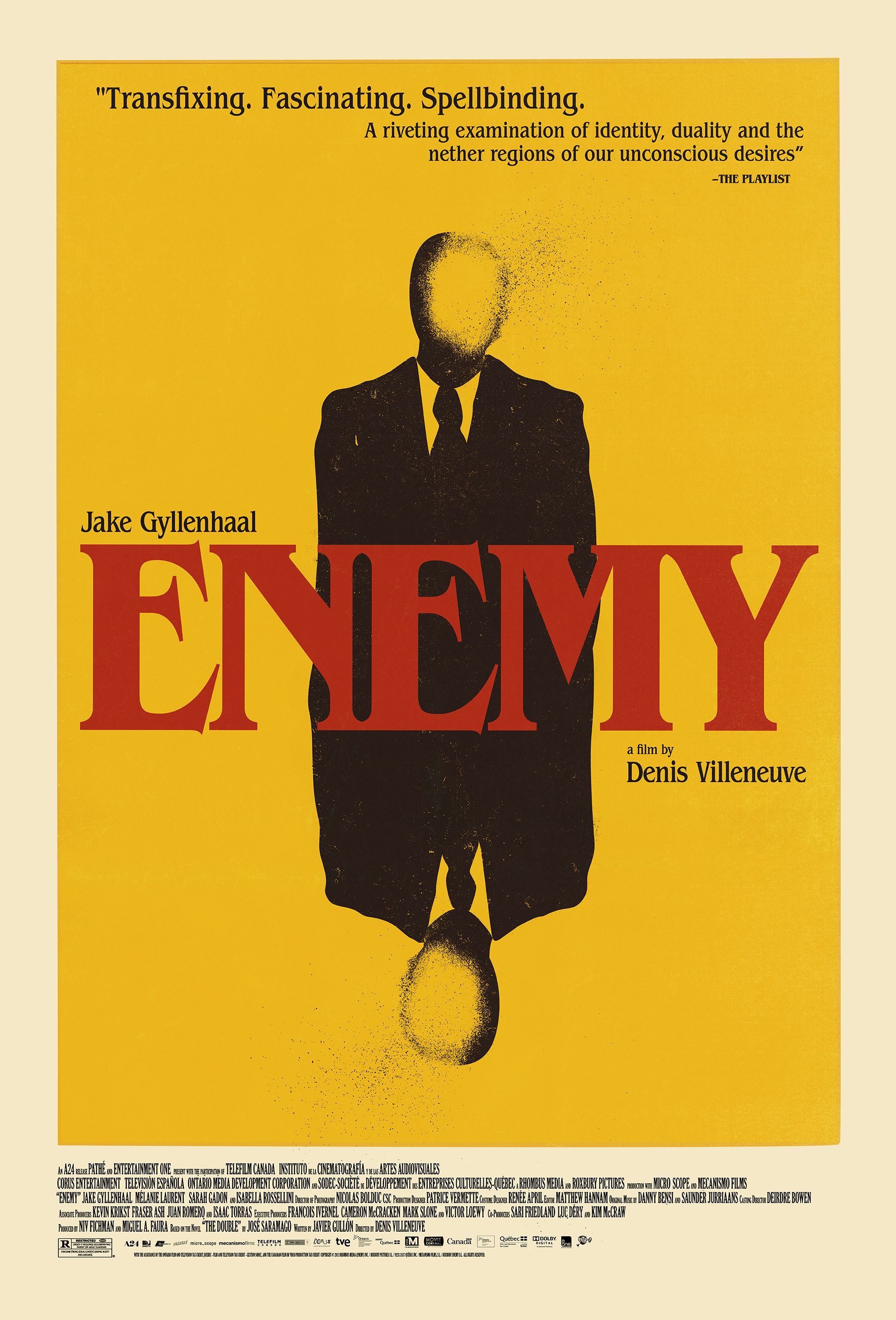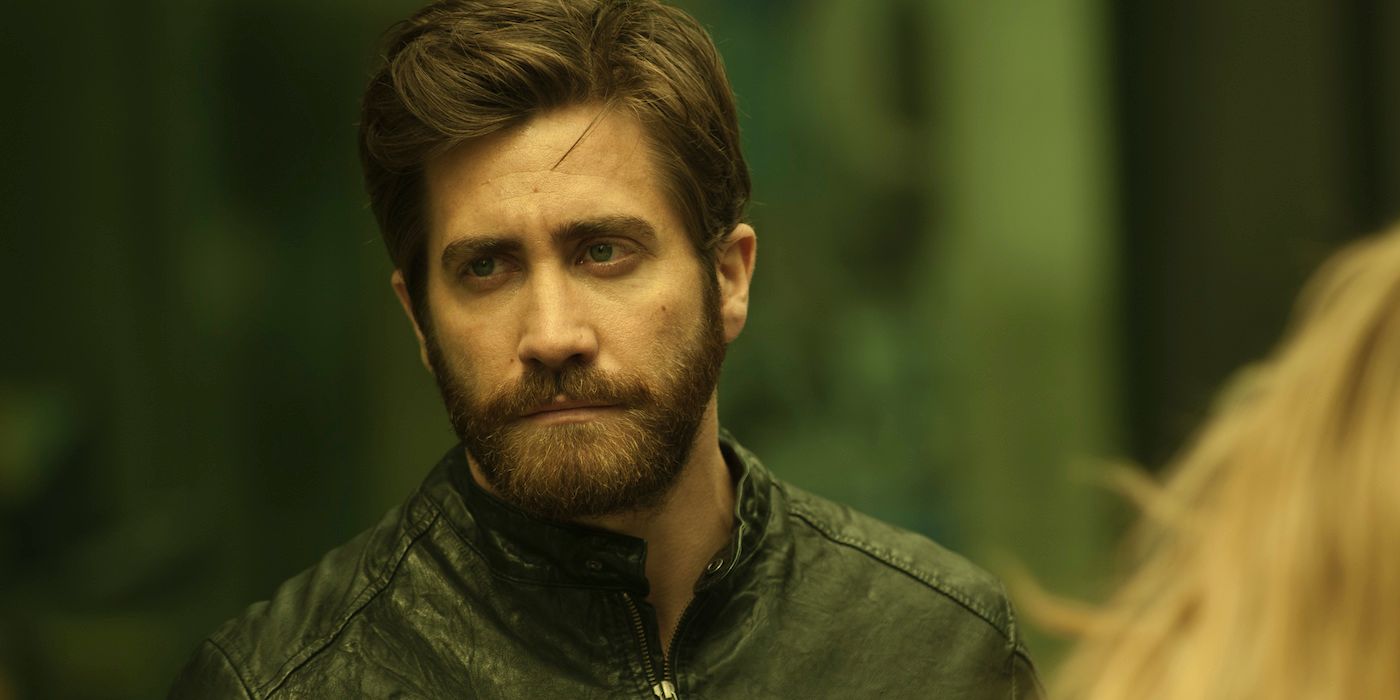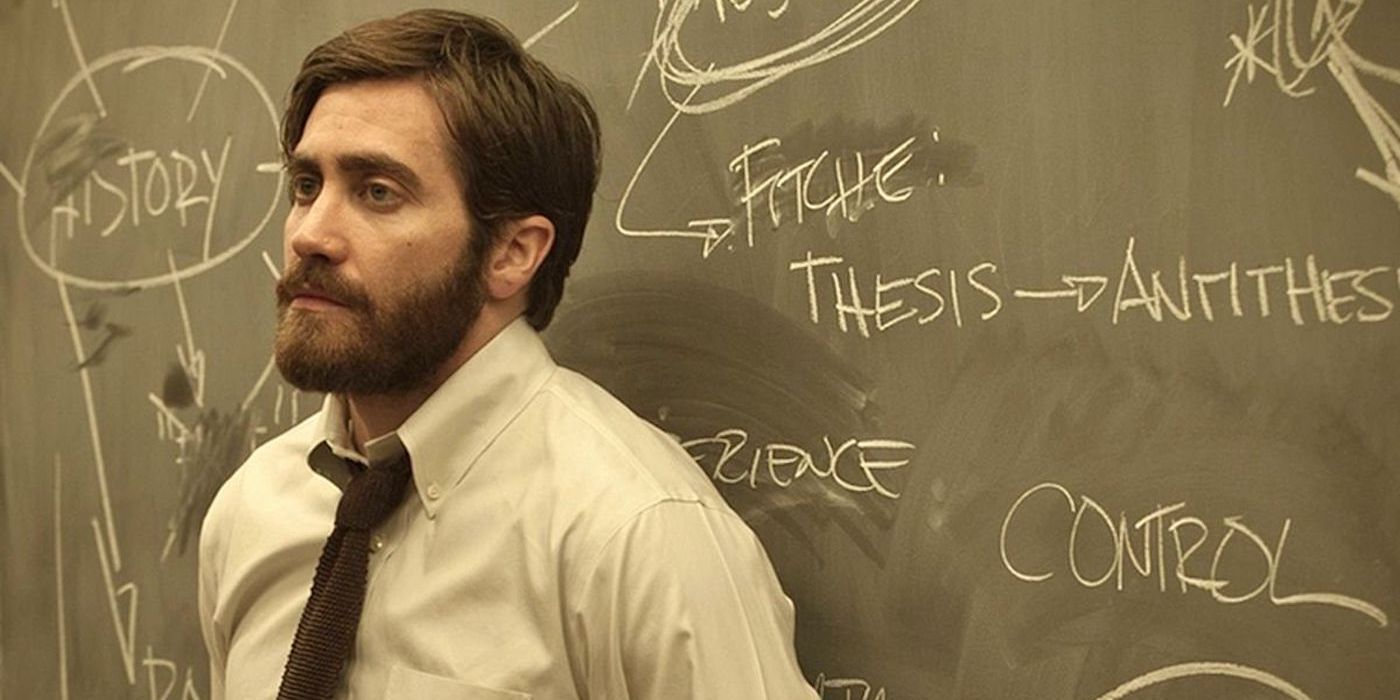The Big Picture
- Enemy is a psychological thriller that explores the meaning behind the literal inclusion of spider-women.
- The film delves into the trappings we face in our lives and the choices that keep us in a never-ending loop of our failings.
- Enemy is ultimately about our compulsions and how they can lead us to make the same mistakes, damaging ourselves and those around us.
The psychological thriller Enemy by Denis Villeneuve, in which Jake Gyllenhaal plays two people who look exactly the same, is an incredible character piece that’s been over-analyzed more than your English teacher’s copy of Othello. And how can somebody not want to read more into it? It’s been a decade since its release and people still talk about it as a film that holds the distinctive accolade of having the “scariest ending of all time.” Hey, if you’re afraid of women randomly turning into giant spiders (or just Jake Gyllenhaal staring at you with disappointment), it’s fairly reasonable to make that claim. It’s a moment that’s effective in leaving the audience to ponder what they just witnessed. But Enemy is a film that’s less concerned with the literal inclusion of spider-women than it is with the meaning behind their inclusion.
The final moments in Enemy deal with the trappings we face in our lives as human beings, in ways that feel both simple and complex to understand. It can be about the lives we choose to live or the choices we make that keep us in a never-ending loop of our failings. Like any other great film, and like life in general, the answer isn't that easy to find. But to try to find some kind of answer, we should start at the beginning.

Enemy
A man seeks out his exact look-alike after spotting him in a movie.
- Release Date
- February 6, 2014
- Director
- Denis Villeneuve
- Cast
- Jake Gyllenhaal , Mélanie Laurent , Sarah Gadon , Isabella Rossellini , Joshua Peace , Tim Post , Kedar Brown , Darryl Dinn
- Runtime
- 91 Minutes
- Main Genre
- Mystery
- Writers
- José Saramago , Javier Gullón
- Tagline
- This is my kingdom come.
What Is 'Enemy' About?
Jake Gyllenhaal is credited as two people in the film: Adam Bell, a placid-yet-curious history professor, and Daniel Saint Claire, an actor whose infidelity towards his pregnant wife (Sarah Gadon) is about as much of a problem to him as is the lack of blueberries in his fridge. When Adam discovers Daniel in the background of a film, he sets out to meet him to figure out why they look identical, resulting in a confrontation that threatens the lives of both men - or maybe just one.
When Daniel finds out about Adam’s girlfriend Mia (Mélanie Laurent), he insists on swapping places with him for a night in an attempt to have sex with her. To be “even,” as Daniel puts it, after accusing him of sleeping with his wife. What follows are two sequences that play out simultaneously, with Adam having sex with Daniel’s wife and Mia being freaked out by Daniel’s wedding ring mark, erupting in a heated argument that ends with them being killed in a car crash. The glass on the driver’s side of the door fractures to resemble a spider web, obscuring what’s left of the recently deceased actor/adulterer. When Adam wakes up the next morning, he finds Daniel’s confidential envelope and decides to open it, revealing a key that looked identical to the one used in the film’s opening scene, which Daniel uses to enter a private sex club. Adam tells Helen that he’s going out for the night, right before we get that striking spider shot, which moves itself back in fear. That’s only because, at this moment, Spider-Helen already knows where Adam is planning to go, and his cycle of cheating and mental disarray is about to begin again.
What Does 'Enemy's Ending Mean?
I have to reiterate that this film has had many interpretations about its ending, and a lot of them are pretty valid. But after multiple viewings and some mental assessments of my own, the only conclusion that I can make about Enemy is that it’s a film about our compulsions, and how some of those compulsions can lead us to make the same mistakes over and over again before ultimately damaging both ourselves and the people around us. Adam and Daniel aren’t so much identical twins than they are two halves of the same person, who from this point forward we’ll refer to as Anthony Claire, the name that Daniel had before changing it to become an actor. The world that Anthony lives in is a balancing act between wanting to live a normal life with his wife and soon-to-be child and wanting to indulge in the alluring habits of privileged intimacy.

Jake Gyllenhaal Nearly Played Christopher Nolan's Batman
Turns out, he was David S. Goyer’s preferred choice.The third act of Enemy is an attempt to lay the temptations that reside inside Anthony to rest, with the subtle revelations that parts of the story’s setting are cerebral fabrications made to keep the “good side” of Anthony (being Adam) from coming out now and being turned against Anthony’s “bad side” (being Daniel). The reality in Enemy, or something that closely resembles it, is that there was no fatal car crash, no Mia, and if you look a little closer, no Daniel in the driver’s seat. It was all a way for Anthony to get rid of his vices and properly return himself to his real life (the biggest clue for this being the photo in Adam’s apartment, where once it was ripped in half showing just one Gyllenhaal is later seen complete with Helen occupying the other side of it). But it can only be seen as an attempt to stop Anthony from being unfaithful again as, like other great films, we’re left with an idea of what can happen next, rather than being shown it. We as an audience can only hope that he breaks his loop. But, as the key signifies, it’s just as easy to fall into our self-made traps as it is to open a door.
What Do the Spiders Mean in 'Enemy'?
And yes, of course, there aren’t any real giant spiders in the film, but their meaning has a lot more nuance than one would expect. The spiders represent an idea of both order and chaos (something that the film’s opening quote alludes to), being that they exist as metaphors for commitment and the inevitable complications that occur if they’re messed with. They’re not a terrifying element as they are an existence. Helen’s transformation into a spider is Villeneuve reiterating that she, along with their child, brings harmony to Anthony’s life. And just like the spider being squashed in the opening scene, it will only lead to disappointment and disruption if Anthony chooses to push them away.
There’s a scene early on in Enemy where Adam gives a lecture about control and how our approach towards it leads to a pattern that repeats itself across history. “Every dictatorship has one obsession,” he says, and while one can interpret this line as a comment on documented oppression, this can also be said about Anthony, or even us as humans with our own urges and vices. We, with all seriousness, are the masters of our domain. Enemy is a film that’s expertly subdued by both Villeneuve's direction and Gyllenhaal’s duality in his performances. Its ending still works today because it reminds us that we are just as capable of putting a stop to our own impulses as we are to enact them. We, after all, can be our own worst enemy.
Enemy is available to rent on Apple TV+ in the U.S.

